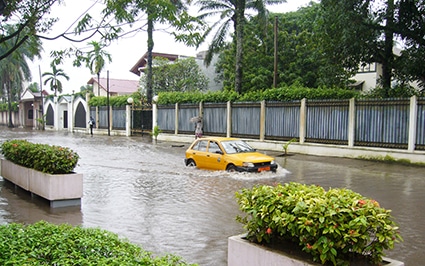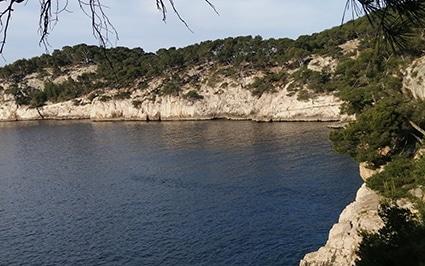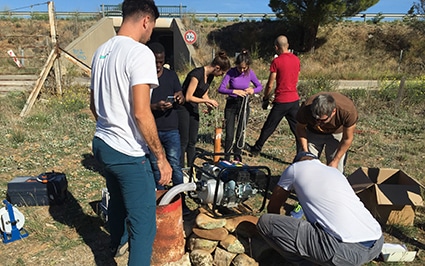Hydro-terrain applications

Flood risk prevention in the megalopolis of Douala, Cameroon
The coastal city of Douala is the economic capital of Cameroon. With about six million inhabitants, it has experienced rapid population growth in recent years, accompanied by urbanisation on flood-prone land. Indeed, the combination of the African monsoon and high tides can lead to very heavy flooding with catastrophic consequences for the population. In 2018, the city of Douala launched a pilot observatory to build a flood forecasting tool. This tool is based on flow modelling and flow measurements.
Researchers involved: Thomas Stieglitz (IRD, CEREGE), Raphaël Onguéné (University of Douala)

Acquisition of observation data at the Port-Miou site
The Port-Miou underground site gives access to a river which is the collector of regional groundwater. Various measurements are carried out on site to monitor the physico-chemical properties of the water and to estimate the flow rate. They have been acquired on an hourly basis for nearly 15 years on site and provide a better understanding of the functioning of the water cycle in the greater Marseille region.
Researchers involved: Bruno Arfib (AMU, CEREGE)

Master 2 STPE "hydrogeology" field school on the Crau plain
Each year, the Master 2 field school uses the platform to deploy several typical hydrogeology field techniques. During a field week, students are familiarised with the basic techniques of sampling, flow measurements, piezometric monitoring and test pumping.
Researchers involved: Christine Vallet-Coulomb (AMU, CEREGE), Julio Gonçalves (AMU, CEREGE)

